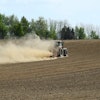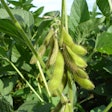
The New World Screwworm (NWS) has emerged as a significant threat to livestock and wildlife in North America, prompting increased cooperation between the United States and Mexico. This parasitic fly, which infests warm-blooded animals and can cause fatal wounds, has been steadily moving northward through Central America and into Mexico since late 2024.
The U.S. Department of Agriculture (USDA) has been actively working to prevent the spread of NWS into the United States. In November 2024, following the first reported case in Mexico, the USDA temporarily closed the border to live animal trade. Imports resumed in February 2025 after implementing comprehensive pre-clearance inspection and treatment protocols.
Despite these efforts, NWS has continued to spread, with recent detections as far north as Oaxaca and Veracruz, approximately 700 miles from the U.S. border. This progression led to the USDA's decision to suspend live cattle, horse, and bison imports through southern border ports of entry in May 2025.
The USDA's strategy to combat NWS involves a three-pronged approach: robust field surveillance with education and outreach, controlled animal movement, and sustained sterile insect dispersal. The department is utilizing various tools, including USDA Tick Riders to monitor livestock and wildlife along the southern border region.
The current situation echoes a previous NWS eradication effort in the U.S. and Mexico, which took decades and cost billions of dollars. The reemergence of this pest underscores the ongoing challenge of maintaining biosecurity in an interconnected world.
In response to the crisis, U.S. Secretary of Agriculture Brooke Rollins has been actively engaging with Mexican counterparts to enhance cooperation. Recent developments include Mexico's commitment to eliminate restrictions on USDA aircraft and waive customs duties on eradication equipment. This agreement has allowed ports to remain open for livestock imports, contingent on Mexico's continued cooperation.
The USDA's efforts extend beyond immediate pest control measures. The department is investing in long-term solutions, such as the $21 million renovation of a fruit fly production facility in Metapa, Mexico. This facility is expected to significantly boost the production of sterile NWS flies, a crucial component of the eradication strategy.
















